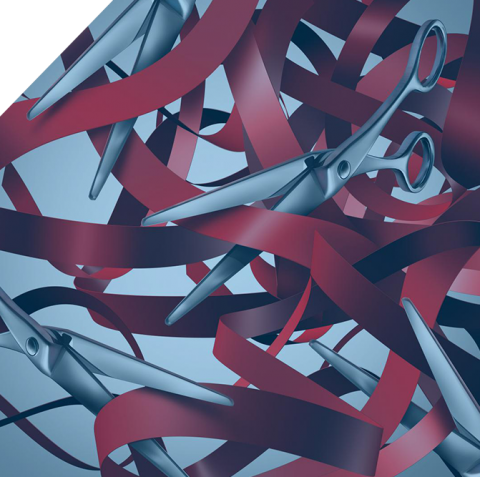Internal Market - Compliance, standards & enforcement
For over 25 years, the EU Internal Market has provided a uniquely stable framework for firms to grow their business across Europe. For the technology companies we represent, this framework should facilitate the free circulation of safe and compliant products throughout the EU – while supporting our industries’ competitiveness, enabling innovation and allowing them to deliver first-class products to the global market.
Orgalim believes that the rules of the Internal Market should be based on trust, transparency, inclusiveness and confidence. Our work on compliance, standards and enforcement therefore focuses on promoting improvements to the EU’s New Legislative Framework, the cornerstone of Internal Market legislation since 2008. A key priority has been to uphold and strengthen what is known as the ‘New Approach’ to technical harmonisation and standards, which recognises that standards are a voluntary, end-user-driven and private compliance tool – an approach that gives flexibility to producers while reducing administrative burden.
By working toward an Internal Market framework that delivers both harmonisation and regulatory stability within the EU and full access to global markets, Europe can support its companies in attracting investment and more rapidly translating innovation into market applications.
Scroll down for an overview of our advocacy work in this area - and click here to view all Orgalim position papers on compliance, standards and enforcement in the Internal Market.
In addition to our work on compliance and enforcement, Orgalim also covers Internal Market legislation related to product safety - see the relevant website page for more details.
The New Approach
The New Approach to technical harmonisation is a model of ‘better regulation’, having supported the free circulation of our industries’ products within the Internal Market for over four decades. We stand firmly behind this approach: it provides the companies we represent with legal certainty while minimising administrative burden. In recent years, however, it has come under threat from increasingly bureaucratic requirements as to the use of standards. Orgalim is committed to preserving the New Approach and opposing any unnecessary bureaucracy that acts as a brake on innovation.

CE marking and compliance
Building on the New Approach, manufacturers in our industries must comply with a set of ‘essential requirements’ and conformity assessment procedures set out in EU harmonised legislation. Producers declare conformity with EU law by applying the ‘CE’ marking, and the self-assessment process that is part of these procedures is invaluable to our companies as it provides flexibility while lowering administrative burden. For this reason, Orgalim’s work in this area centres on reinforcing the role of self-assessment within the EU compliance regime.
Standardisation policy
For the technology companies we represent, technical standards are a valuable instrument for ensuring interoperability and compatibility. Under the New Approach, manufacturers can also use voluntary ‘harmonised standards’ (as defined in EU law) to benefit from the presumption of conformity with EU legislation. These standards are mostly developed by industry experts, facilitated by the organisations CEN, CENELEC and ETSI. Orgalim’s advocacy in this area focuses on emphasising the voluntary nature of harmonised standards, which we firmly believe should be viewed primarily as a tool for meeting technical and market needs – not as an extension of EU law.

Market surveillance
To ensure a level playing field within the Internal Market, an effective and efficient system of market surveillance is vital. This means checks by national authorities on the ground to ensure the products being sold – including those imported from outside Europe – are in fact compliant with EU law. Orgalim is a long-standing advocate of smart, cost-efficient market surveillance solutions that can reduce unfair competition for legitimate manufacturers, while enhancing safety for end-users. To this end we promote a more active coordination role for the European Commission, including through mechanisms such as the rapid alert system (RAPEX) and the information and communication system for pan-European market surveillance (ICSMS).


